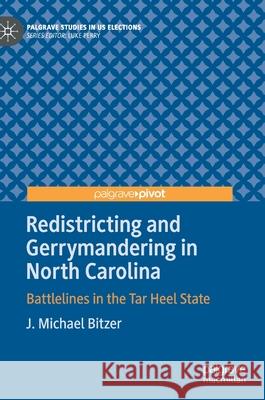Redistricting and Gerrymandering in North Carolina: Battlelines in the Tar Heel State » książka
topmenu
Redistricting and Gerrymandering in North Carolina: Battlelines in the Tar Heel State
ISBN-13: 9783030807467 / Angielski / Twarda / 2021 / 165 str.
Redistricting and Gerrymandering in North Carolina: Battlelines in the Tar Heel State
ISBN-13: 9783030807467 / Angielski / Twarda / 2021 / 165 str.
cena 244,20 zł
(netto: 232,57 VAT: 5%)
Najniższa cena z 30 dni: 244,20 zł
(netto: 232,57 VAT: 5%)
Najniższa cena z 30 dni: 244,20 zł
Termin realizacji zamówienia:
ok. 16-18 dni roboczych.
ok. 16-18 dni roboczych.
Darmowa dostawa!
Kategorie BISAC:
Wydawca:
Palgrave Pivot
Seria wydawnicza:
Język:
Angielski
ISBN-13:
9783030807467
Rok wydania:
2021
Wydanie:
2021
Numer serii:
000880635
Ilość stron:
165
Waga:
0.36 kg
Wymiary:
21.01 x 14.81 x 1.12
Oprawa:
Twarda
Wolumenów:
01
Dodatkowe informacje:
Wydanie ilustrowane











